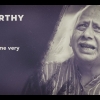Question: Where do you think the relevance of Comparative Literature lies vis-a-vis the socio-cultural context of India?
Jasbir Jain: Comparative Literature is relevant on account of several reasons: our multilingualism, the need to widen our horizons, be in touch with the rest of the world across theoretical positions and across time and history as well different art forms.
Q.: How would you locate the factors that led you to the disciplinary practice of Comparative Literature?
J.J.: The pleasure of reading literature from other cultures led me to it. Culture is a silent and an invisible factor in most writing, but it can be felt in the reading and this recognition immediately opens out another world leading to a sense of discovery and exhilaration
Q.: How would you respond to the formation of curriculum and the institutionalization of Comparative Literature in and from your location?
J.J: Teachers in language departments and social sciences have been working in comparative studies. I recall that in Political Science we studied five constitutions. Other examples can easily be cited. In English departments we have expanded over the years and different departments/universities have moved further than Greek literature to include American, Canadian, Australian, the West Indies, Russian, Indian Classics in Translation, European literatures, World Classics but mostly without the methodology of Comparative literature or the theory of Translation Studies. As we move from the past to the present, work on different cultural challenges, economic and political conditions, theoretical frameworks, the need for a grid to hold them together is imperative. Poetics and aesthetics benefit from comparisons and the moment we move out of single contexts, the world opens out.
We also need to work with comparative semiotics of the different mediums—television, theatre, film, as well as the interface with technology. Whenever the discussion in the classroom flows out to include contemporary TV programmes, concepts like plot, catharsis, and dark comedy open out for the student in contemporary contexts.
Q.: How do you wish to incorporate the teaching of Indian Literature in the discipline of Comparative Literature?
J.J.: It is relevant to all language departments: English, Hindi, Marathi, Gujarati etc. But the learning of a third language other than the language of the department and English should also be incorporated as a subsidiary compulsory course. It will help us out of our colonial pasts and lead to newer definitions of identity, subjectivity and other related terms. Besides it will move outside binary frameworks to a multitude of contexts.
Q.: How do you envisage the future of Comparative Literature?
J.J.: It should help in creating knowledge, compassion, understanding but the theoretical grid is important, else meaningless surface comparisons are made between two novels or a novel and a film.










